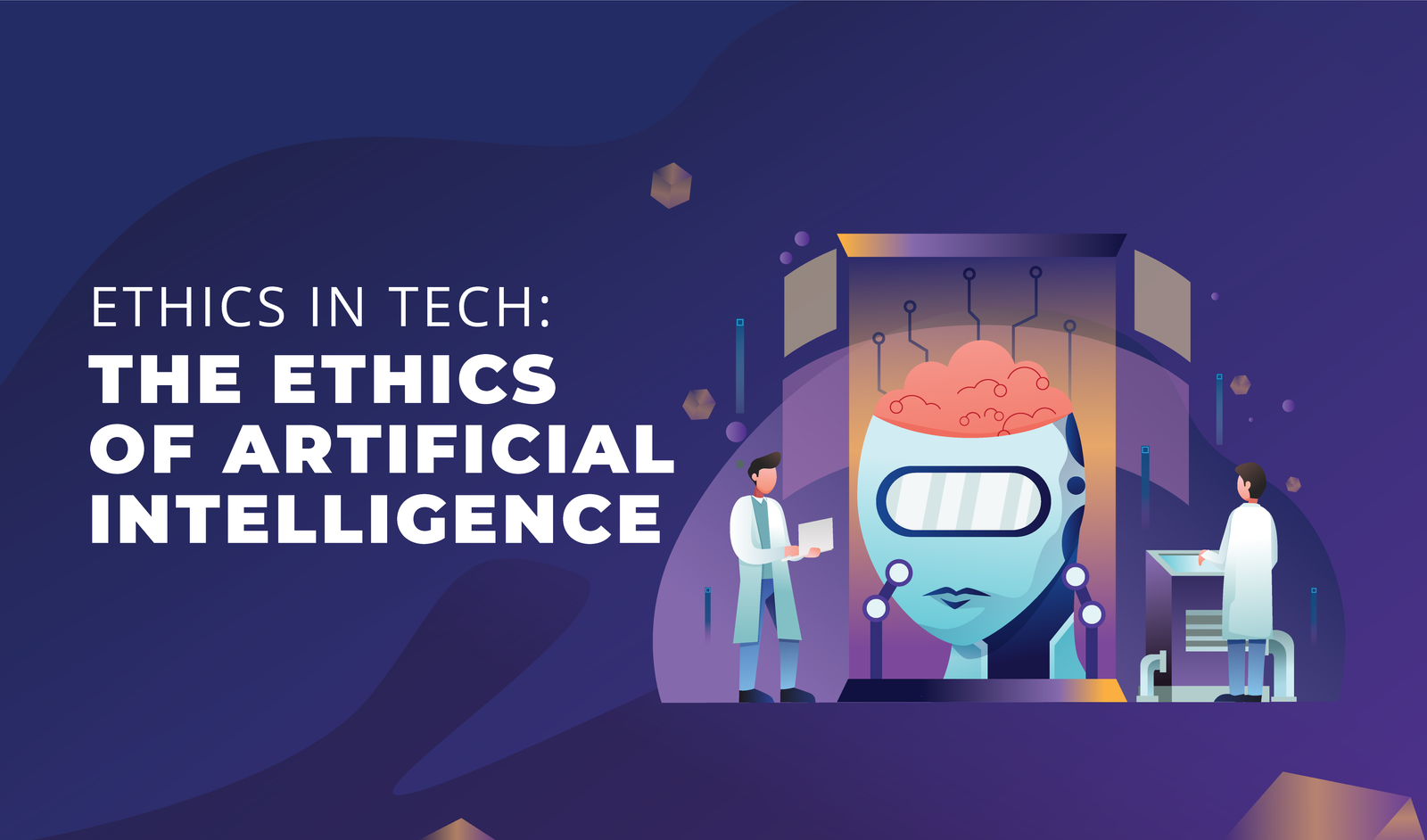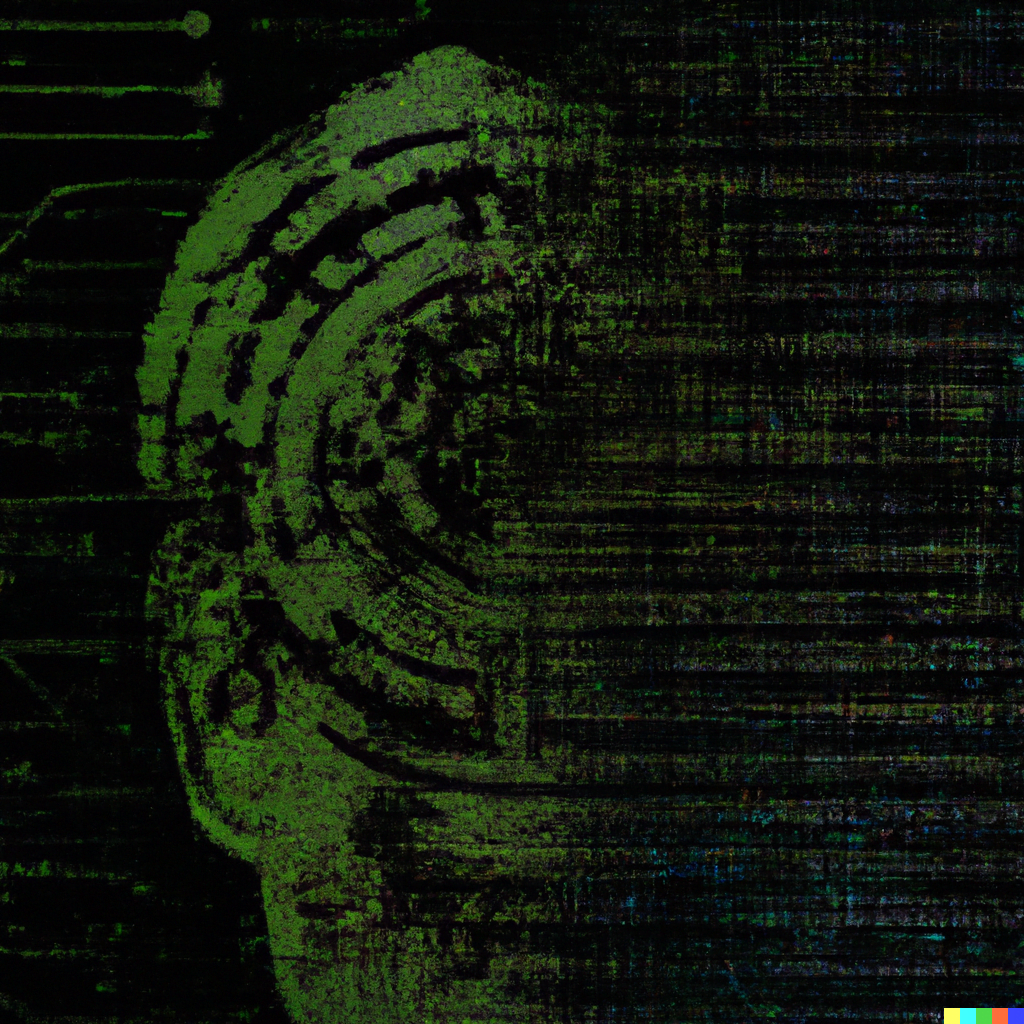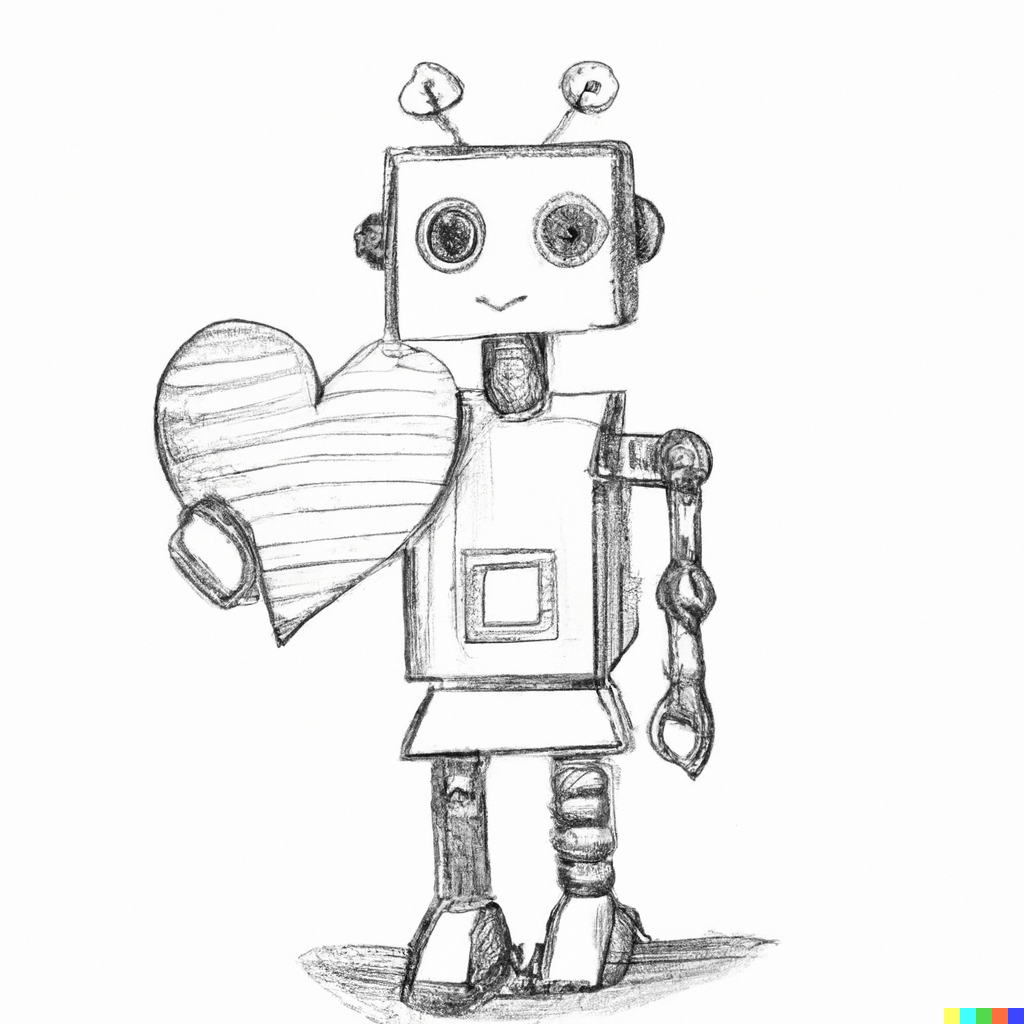Ethics in Tech: The Ethics of Artificial Intelligence

Posted: Jan 10,
THE A.I. BOOM IS JUST STARTING
The sudden explosion of new Artificial intelligence (AI) & Machine Learning systems has the potential to greatly benefit humanity, from improving healthcare to reducing poverty.
A.I. generated art can even help folks with disabilities express themselves more easily in ways they haven’t been able or allow artists to more easily get their concepts and ideas to paper by giving artists new tools to hone their craft & a new medium to explore and create.
However, the development and deployment of AI also raises important ethical questions.
There is a lot of negativity in regards to Artificial Intelligence and Machine Learning at the moment. Especially in the art space but even ChatGPT is getting some negativity as well.

“Artificial Intelligence Generating Art” – Created with DALL-E 2

“childrens book illustration of different colored robots in the process being assembled” – Created with DALL-E 2
ALL MACHINES ARE NOT CREATED EQUAL
In this article, we will explore some of the key ethical issues surrounding AI and how they can be addressed. As I have trained A.I. before, I thought I would share some alternative more positive although admittedly bias takes.
Firstly, it’s important to note that not all A.I. should be considered the same. While some machines are trained on data that may have been acquired without consent (i.e., work from unpaid artists). It can also come exclusively from consensual sources and it should.
As an artist myself. I understand the frustration some artists may feel in regards to having their art stolen and used as training data without their permission. The tech industry has finally created something that could be used to replace creative careers. I also know that a lot of the frustration is with capitalism & how it criminally undervalues and underpays artists for their work.
One possible solution might be to have tech companies who are training AI, approach artists and pay them to create art to help train the machine. This way the data is being paid for and the artist is getting payment & creating new work that is more specific to what the client needs for training.
WHAT ETHICAL CONCERNS SHOULD WE HAVE WHEN IT COMES TO A.I.?
One major ethical concern is the risk of AI being used to cause harm. For example, autonomous weapons systems could be programmed to kill without human oversight, and AI-controlled systems could be used to discriminate against certain groups of people. To mitigate these risks, it is important to ensure that AI systems are designed with safety and security in mind, and that they are regularly audited to detect and prevent any malicious behavior.
As I briefly mentioned earlier, another ethical concern is the risk of AI replacing human jobs. As AI systems become more capable, they may be able to perform tasks that were previously done by humans, leading to widespread job loss. This could have a significant impact on the economy and on society as a whole. To address this issue, governments, individuals and companies should invest in programs that help retrain workers for jobs in industries that are less likely to be automated or maybe as a society we just embrace technology and allow our jobs being fully or semi-automated. With the perks of enjoying less work-time and more free-time.

“Artificial Intelligence Robot in the style of Disney” Created with DALL-E 2

“Robots Gone Rouge” – Created with DALL-E 2
BIAS & PRIVACY
Bias is also a major ethical concern in the development of AI systems. AI systems can perpetuate and even amplify societal biases if they are trained on biased data. This is particularly concerning when AI is used in areas such as criminal justice, healthcare, and lending, where decisions based on biased algorithms can have significant consequences for individuals and communities. To address this issue, it is important to ensure that the data used to train AI systems is representative and unbiased, and that the systems are regularly audited to detect and correct any biases.
Privacy is another important ethical concern with AI. The vast amounts of data that are collected and analyzed by AI systems can be used to infer sensitive information about individuals, such as their medical conditions or political views. To protect privacy, it is important to ensure that individuals have control over their data and that data is used only for the purposes for which it was collected and with permission. Governments, individuals and companies should also implement robust data protection policies to prevent the misuse of data.
WHAT CAN BE DONE?
Some groups such as OpenAI are doing a pretty great job leading the way in terms of ethics in AI. You can take a look at their DALL·E 2 Preview – Risks and Limitations write up which gives a good overview of the thoughts and processes used when creating DALL-E, including the possible risks and potential mitigations.
In conclusion, the development and deployment of AI raises important ethical questions that must be addressed to ensure that the benefits of AI are realized while minimizing the risks. By designing AI systems with safety and security in mind, retraining workers for jobs in industries that are less likely to be automated, and addressing bias, privacy and other issues, we can ensure that AI is used ethically and responsibly.

“A friendly robot holding a heart, pencil sketch” – Created with DALL-E 2